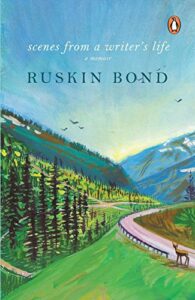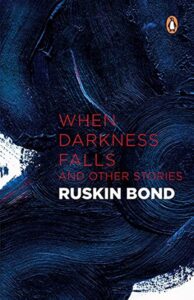by Anushree Ghosh
Fostered from the roots of Nature – Ruskin Bond’s Story not only expresses the elementary foundation between nature and mankind but curates and cultivates every character straight from our everyday lives. Bond refrains from preaching but puts anecdotes from real life on paper; the lives of simple and ordinary people like thieves, gardeners, beggars, teachers, drivers, and house helpers. Bond’s world never interferes with the super-rich idiosyncrasies but with the poor and middle-class struggles. Most importantly, Bond portrays his characters deciding on the lights of the circumstances, and what is required at the moment, not making his readers judge them for just doing what they knew best.
Above all, Bond knows that kindness doesn’t discriminate between saints and sinners, because he knows that individual behaviors are unique to one’s innate traits and upbringing; even between saints and sinners, no two people are alike, and differences are what make them who they are.
Some of the recurring themes in Bond’s stories are abandonment by their parents, the relationship between a child and his father, love for nature, changing India, and unrequited love – all derived from Bond’s personal life and childhood memories. Other themes that appeared in Bond’s stories are partition, Hindu traditions, and cold-blooded murders.
Bond’s stories exhibit Flora and Fiona on the same platform as humans. His stories depict the sentiments and physical complications of all the living beings on earth with equal compassion. Like Wordsworth, his work depicts the inversely proportional relationship between human civilization and the well-being of nature.
In Ruskin Bond’s autobiography “Scenes from a Writer’s Life”, he writes:
“We must acknowledge their [animals] rights on this Earth. Everywhere, birds and animals are finding it more difficult to survive, because we are destroying their homes.”

One of his stories ‘Susanna’s Seven Husbands’ revolves around Susanna’s desire to find love and her failed attempts, leaving a trail of dead husbands. It was also turned into the movie ‘Saat Khoon Maaf’ by Vishal Bharadwaj.

Some of Bond’s stories are derived from imagination with supernatural occurrences. In the story, “When Darkness Falls”, Markham meets a tragic accident and is left to survive with a deformed face. The war veteran lives in a cellar for many years feeling the outside light or breeze. Suffocated in the trapped environment, sometimes Markham would stroll on the deserted road at night. Markham’s incapability to accept himself for what he is, makes the darkness devour him.

Ruskin Bond’s writings can be deciphered as an implication of innocent minds delayering the truths of normal life. He has carved a niche amongst the lovers of short stories in India and abroad. One of the reasons for this admiration is his simplistic approach and the appearance of his characters in their authentic flesh and blood.







+ There are no comments
Add yours